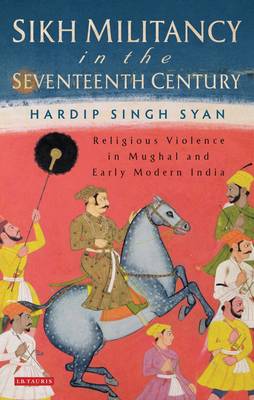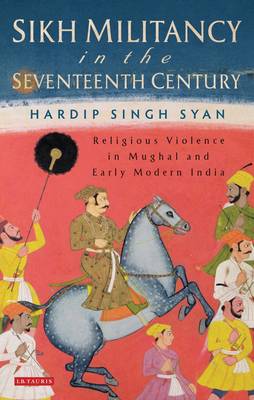
- Afhalen na 1 uur in een winkel met voorraad
- Gratis thuislevering in België vanaf € 30
- Ruim aanbod met 7 miljoen producten
- Afhalen na 1 uur in een winkel met voorraad
- Gratis thuislevering in België vanaf € 30
- Ruim aanbod met 7 miljoen producten
Sikh Militancy in the Seventeenth Century
Religious Violence in Mughal and Early Modern India
Hardip Singh SyanOmschrijving
In the seventeenth century, the Sikh community entered into a process of militarisation which would culminate in rebellion against the Mughal Empire. Images of a despotic Mughal state, religious intolerance, vulnerable Sikhs and the idea of an inevitable Sikh 'militancy' would come to characterise the period's historiography. This book examines the development of Sikh militancy in this era, highlighting how the Sikh literati, and eventually the public, engaged with the subject of Sikh religious violence. In doing so, it fundamentally challenges the coherent grand narratives of early Sikh history. Sikh Militancy in the Seventeenth Century addresses the issue of 'doxa' in early Sikh writing and illustrates how retrospective readings have distorted the experiences of the historical Sikh community. Drawing on a range of medieval Sikh sources, it focuses on the intellectual dialogues within the community. Additionally, it attempts to embed the community within the Mughal world; assessing how far it was influenced by wider cultural, intellectual and social processes. The development of Sikh militancy in the seventeenth century was neither natural nor inevitable.Instead, a careful analysis reveals a heterogeneous community who discussed the ideas of their leaders and communally interpreted the Mughal state.
Identifying significant distinctions in the community, this work thereby questions irredentist visions of Sikh and Mughal history. Furthermore, it seeks to depict the significance of religious discourse in pre-colonial India and the capacity of historical agents to fathom 'religion'. More broadly, the study also examines the history of violence in medieval South Asia, contextualising the concepts of 'peace' and 'militancy' in medieval South Asian theology and political philosophy.
Specificaties
Betrokkenen
- Auteur(s):
- Uitgeverij:
Inhoud
- Aantal bladzijden:
- 328
- Taal:
- Engels
Eigenschappen
- Productcode (EAN):
- 9781350160996
- Verschijningsdatum:
- 30/04/2020
- Uitvoering:
- Paperback
- Formaat:
- Trade paperback (VS)
- Afmetingen:
- 140 mm x 216 mm
- Gewicht:
- 376 g

Alleen bij Standaard Boekhandel
Beoordelingen
We publiceren alleen reviews die voldoen aan de voorwaarden voor reviews. Bekijk onze voorwaarden voor reviews.











